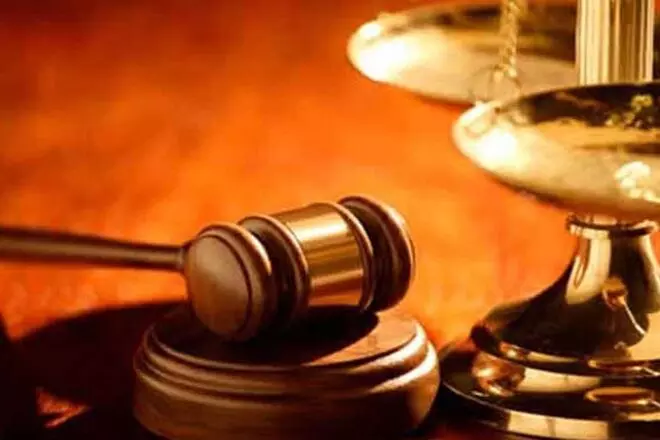BCI declares war on fake law degrees, orders nationwide verification of all advocates on rolls

NEW DELHI: Concerned over malpractices and glaring irregularities in legal education in the country, the Bar Council of India (BCI) has cracked the whip on instances of fake law degrees being awarded by some universities.
Taking cognisance of a “deeply concerning” report from Chaudhary Charan Singh University in Meerut (UP), which identified 13 instances of fake law degrees verified by the Bar Council of Delhi, the top regulatory body termed the prevalence of such practices a “grave threat” to the legal profession and called for immediate corrective measures.
The unravelling of 13 fake law degrees from CCS University, Meerut, is only the tip of the iceberg. The BCI stated that the number of such fake law degrees might be much larger, running into several hundred fraudulent enrolments in Delhi alone. The number of fraudulent enrolments of advocates using fake law degrees and forged certificates is believed to be significantly higher across the country.
Taking a serious view, the regulatory body took a hard stance against the conduct of some recognised and deemed universities that have been found issuing law degrees in violation of the norms established by the regulatory body.
In certain instances, these institutions have turned legal education into a mere commercial transaction under the guise of education. Such unethical practices must be immediately eradicated to safeguard the sanctity of legal education and prevent further erosion of professional standards, the BCI noted.
“Subsequent internal investigations suggest that this problem is systemic, with evidence pointing to over several hundred additional cases of fraudulent enrolments in Delhi alone. The prevalence of such practices constitutes a grave threat to the legal profession and warrants immediate corrective measures,” BCI Principal Secretary Srimanto Sen pointed out in a press statement on Tuesday.
The Bar Council of India observed the widespread failure of some of the State Bar Councils to initiate strong verification processes. Reports and evidence suggest that thousands of advocates across India may have enrolled using fake law degrees, forged academic certificates, or falsified qualifications. These fraudulent enrolments compromise the integrity of the legal profession and diminish public trust in the judiciary and legal institutions.
The BCI noted with disapproval the conduct of certain educational institutions, including Chaudhary Charan Singh University, in delaying the issuance of verification reports and demanding verification fees before processing such requests.
“These actions are in blatant contravention of the directives of the Supreme Court, which categorically mandate that universities and educational institutions facilitate the verification process promptly, without imposing financial impediments,” the BCI stated.
The Bar Council of India strongly directed Chaudhary Charan Singh University and all other universities to comply with these binding guidelines forthwith.
It noted that the Supreme Court’s constitution of a High-Powered Committee on April 10, 2023, has provided crucial monitoring in enforcing the Bar Council of India’s verification framework.
The committee’s regular monitoring of the verification processes has addressed systemic delays in identifying non-practicing advocates, verifying certificates, and preparing electoral rolls. This need for stringent supervision and transparency led to the amendment of Rule 32, ensuring that only practicing advocates participate in Bar Council elections, thereby safeguarding the credibility and professionalism of the legal fraternity. Rule 32 authorises the Bar Council of India to extend the tenure of State Bar Council members to allow adequate time for verification and electoral preparation. The rule mandates the completion of verification within 18 months and elections within six months thereafter.
Failure to comply results in the dissolution of State Bar Councils and the formation of Special Committees under Section 8A of the Advocates Act, 1961. This strong framework, reinforced by Supreme Court directives, has enhanced the Council’s ability to uphold transparency and accountability within the profession.
Many Bar Councils have taken preliminary measures by identifying and removing advocates found to have enrolled on the basis of fake degrees. However, it is imperative to emphasise that under Section 26(1) of the Advocates Act, 1961, the statutory authority to remove an advocate from the rolls of any State Bar Council vests solely with the Bar Council of India. The Bar Council of India unequivocally directs all State Bar Councils to prioritise and complete a comprehensive verification process of all advocates on their rolls. Any instances of fake or fraudulent enrolment must be promptly referred to the Bar Council of India under Section 26(1) of the Advocates Act, 1961. Non-compliance with this statutory mandate will be treated as a dereliction of duty and may invite appropriate legal consequences.
The Bar Council of India reiterates that it is fully obligated to ensure the removal of unqualified and fake lawyers from the profession. It has directed all State Bar Councils to provide detailed reports on their verification processes, supported by concrete evidence, to enable appropriate action. The Bar Council of India will submit a consolidated report on this matter to the Supreme Court. The verification drive has also led to preemptive surrenders by advocates aware of their fraudulent status. This ensures that no individual evades accountability for actions that have harmed public trust and compromised the legal system. The Bar Council of India is addressing fraudulent enrolments at their root, paving the way for an ethical and transparent legal profession.
The Bar Council of India reaffirms its steadfast dedication to safeguarding the integrity of the legal profession. It assures the public, the judiciary, and the legal fraternity that no effort will be spared in identifying and removing fake lawyers from the rolls. Such measures are essential to preserving the dignity, credibility, and nobility of the legal profession.
It reminded all State Bar Councils that compliance with the Advocates Act, 1961, and adherence to the directives of the Bar Council of India are not optional but mandatory.



